Aluminium vs steel windows
When choosing windows for your home or commercial property, the decision between aluminium and steel will shape not only the look of your building, but also your project’s budget and the longevity, performance and sustainability of your windows.
As experts in installing replacement windows for thousands of properties throughout Sussex, we explain the difference between these robust materials to help you make the right choice for your project, whether for a domestic or business setting.
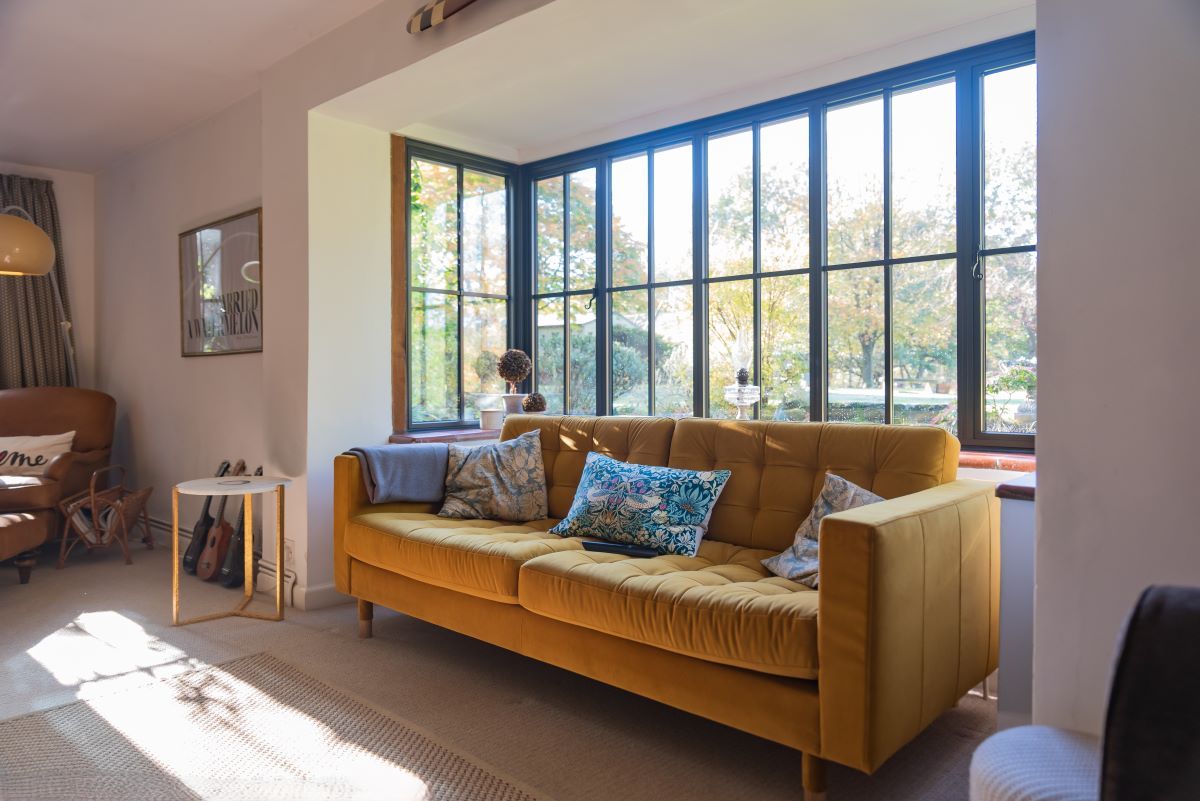
The attributes of aluminium vs steel
While aluminium and steel windows share a similar aesthetic – both materials offer slim, elegant sightlines – they each have distinct attributes that will inform your choice depending on the context and priorities of your project.
Aluminium windows
Strength and aesthetics
Aluminium is incredibility strong, yet lightweight. This means that it is highly adaptable when it comes to form and, because it’s light, it can be used to create expansive areas of glazing.
It can be moulded into a variety of profiles and its slim, lightweight and malleable nature allows it to be easily formed into a variety of shapes and sizes.
For example, our range of aluminium windows are available in a ‘flush sash’ style, which gives a sleek, contemporary look, or with sculpted details and Georgian bars to suit traditional properties.
Security
Despite their lightweight nature and slim profile, aluminium windows offer unrivalled security, meeting the PAS24 security accreditation.
Advanced manufacturing methods also strengthen the frame corners, securing both the frames and the glazing.
Thermal efficiency
Aluminium windows are manufactured with the latest thermal break technology, which gives them excellent thermal insulation and minimises condensation.
All opening windows also include double rebates and in-built weather seals, to prevent draughts and water ingress.
Maintenance
Renowned for its longevity, aluminium doesn’t rust or corrode. It is highly durable in all weather conditions.
Aluminium is very low maintenance, especially when it has been powder coated and finished in the chosen colour. It requires only occasional, light cleaning.
Colour choice
Colour selection is a key part of the design of your project.
Available in the full spectrum of RAL colours and a selection of anodised finishes, with aluminium windows the choice of colour and finish is virtually limitless.
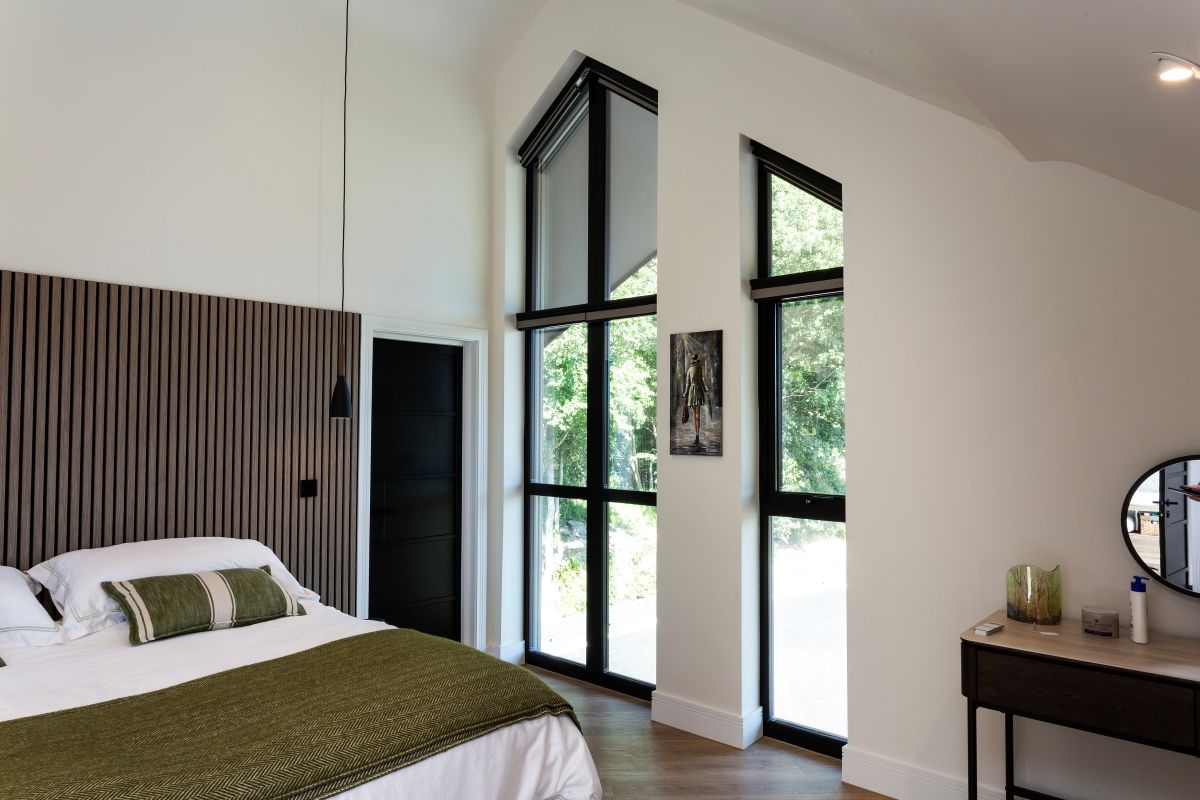
Sustainability
Aluminium is not only abundantly available, is one of the most recyclable materials on the planet, making it a highly sustainable resource.
According to the International Aluminium Institute, the recycling process uses only 5% of the energy required to make new aluminium.
Cost
Aluminium is a significantly more affordable option than steel – costing usually four to five times less.
Aluminium emulating tradition
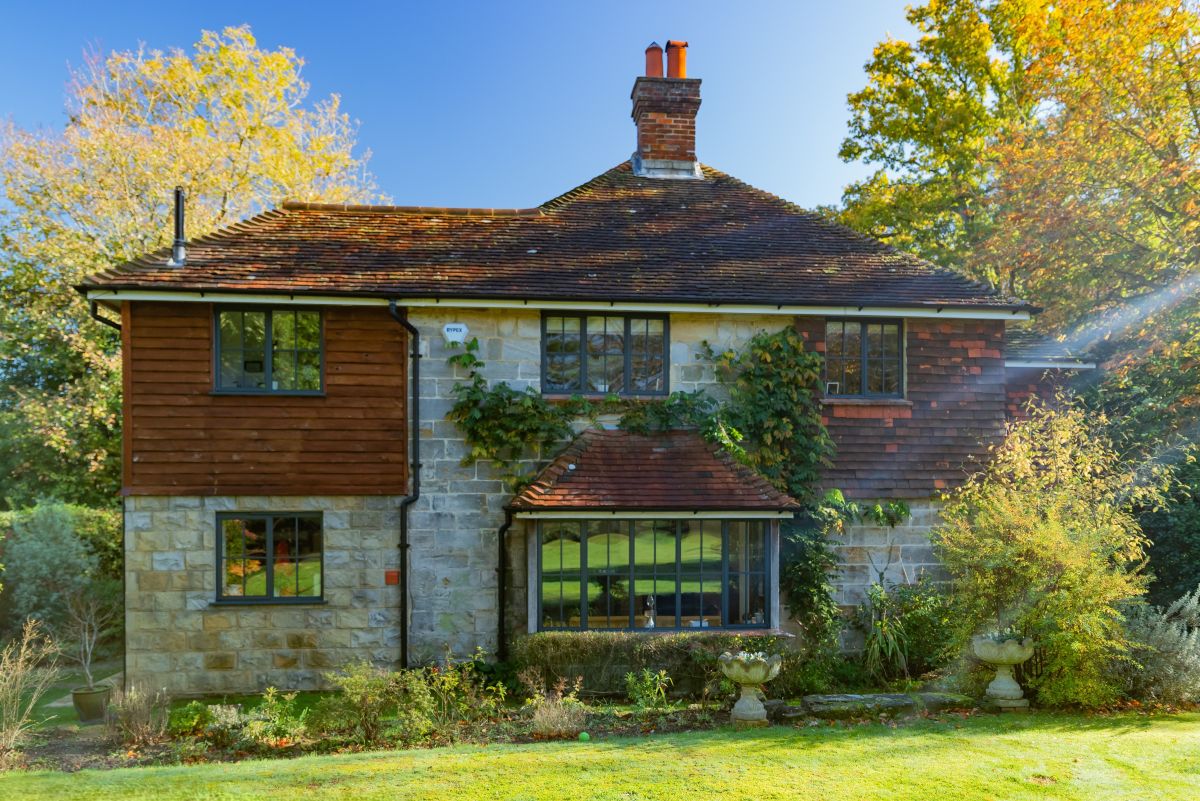
Steel Windows
Strength and aesthetics
Steel, by its nature, is incredibly strong. When used for windows, this strength allows for enormous panes of glass and ultra-slim profiles. Think The Shard or the Eden Project’s domes.
Steel lends itself to industrial-style architecture and period or listed properties where its use may be stipulated as a like-for-like replacement.
Modern steel windows can also be styled with precision and creativity, but this is a more labour-intensive process as you’d expect from such a robust material.
Security
The sheer strength of steel makes it a very secure material for windows, as it is very difficult to bend or damage.
Steel windows can be fitted with multi-point locking systems and glazing bars for increased security.
Thermal efficiency
Not all steel windows include a thermal break within their frames. This reduces thermal insulation and can cause condensation to form.
However, most modern steel windows do meet the required standards for energy efficiency.
Maintenance
Steel is susceptible to rust and corrosion. Whilst painted steel will resist corrosion, regular inspection is required to check for any rust. Cleaning and re-painting the surface where necessary will protect the metal.
Colour choice
Steel windows are available in a wide range of RAL colours.
Sustainability
Steel can be endlessly recycled without loss of quality. Its strength gives it longevity when properly maintained, and many steel windows are made from recycled content.
However, its production is energy-intensive when compared to aluminium
Cost
Steel windows are a more specialised option and typically come at a much higher cost – around four to five times more than aluminium windows.
A Sussex icon of steel
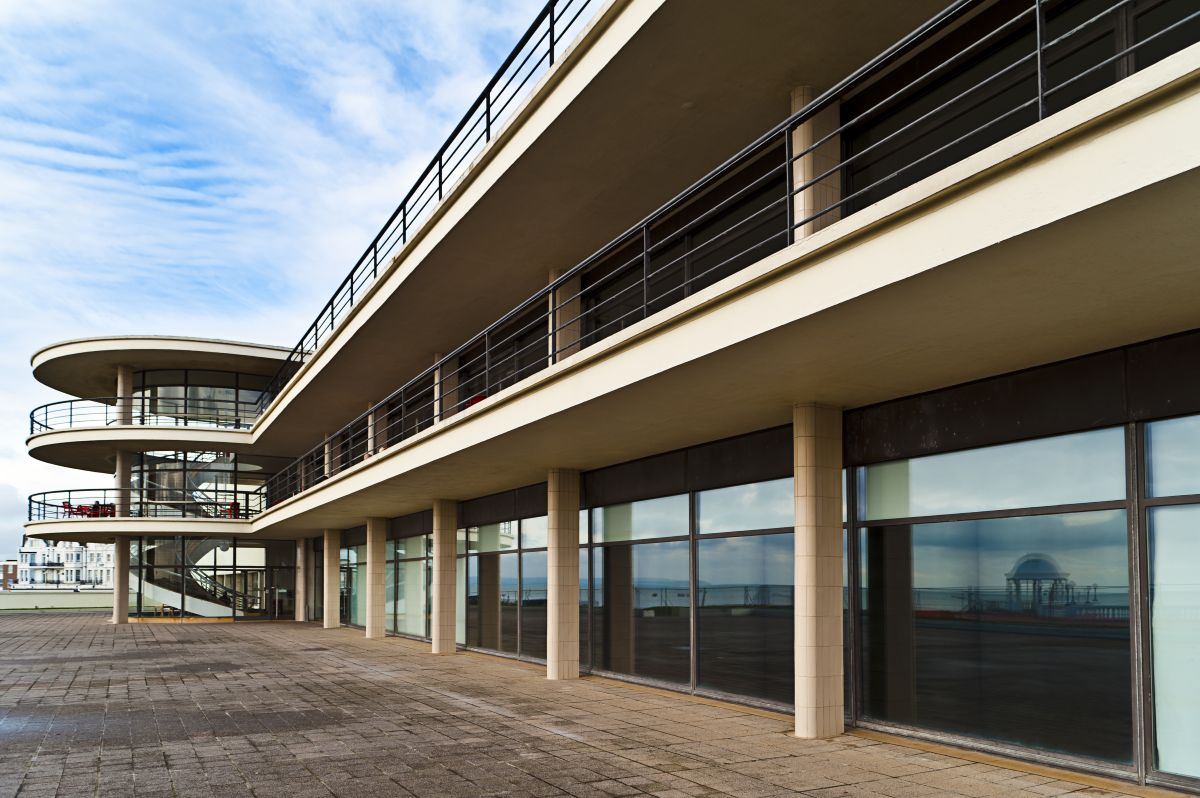
Aluminium vs steel at a glance
Here’s a quick summary of the different characteristics of aluminium and steel windows:
Strength and aesthetics
| Aluminium | Steel |
|---|---|
|
|
Security
| Aluminium | Steel |
|---|---|
|
|
Thermal efficiency
| Aluminium | Steel |
|---|---|
|
|
Maintenance
| Aluminium | Steel |
|---|---|
|
|
Colour choice
| Aluminium | Steel |
|---|---|
|
|
Sustainability
| Aluminium | Steel |
|---|---|
|
|
Cost
| Aluminium | Steel |
|---|---|
|
|
Residential and commercial projects
Residential
For residential projects, aluminium is usually the preferable option. It delivers exceptional performance, stunning visual appeal and excellent value.
Even for homeowners who are replacing Crittall steel in their property, local authorities are often supportive of replacement with a matching design in aluminium.
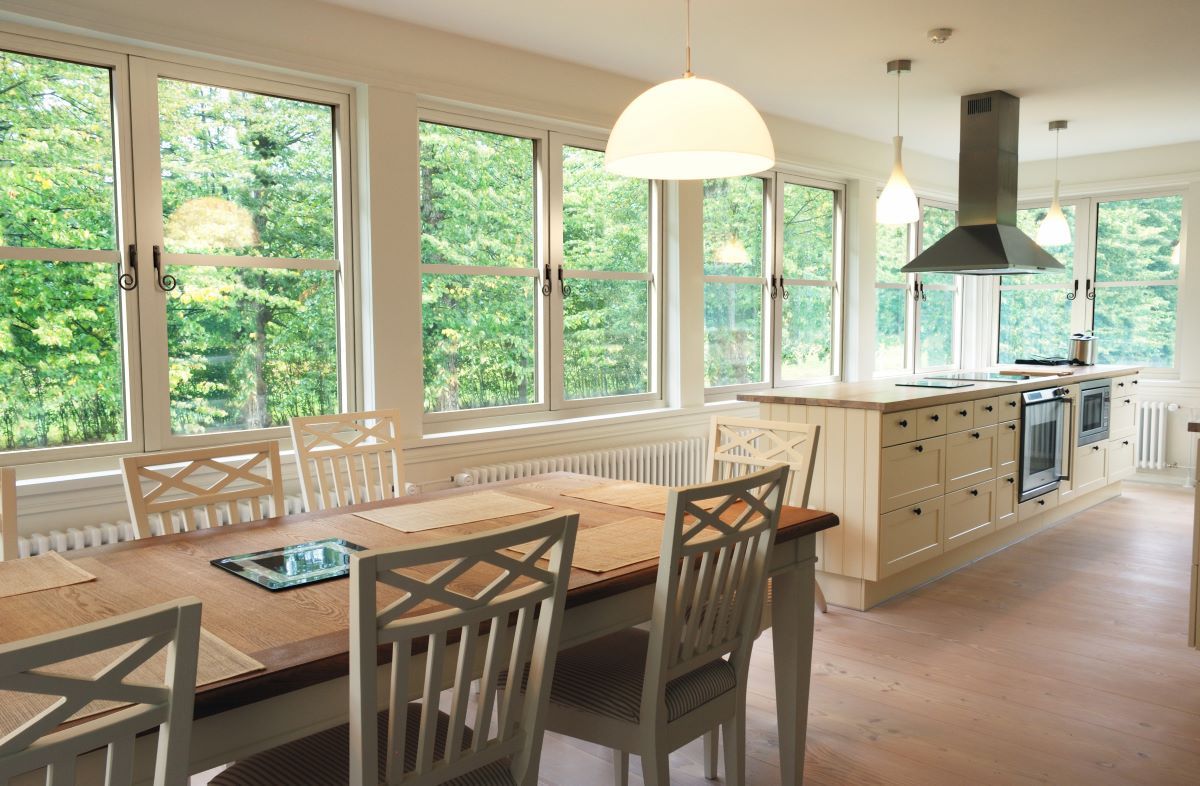
Commercial
For commercial properties or architecturally sensitive buildings, both materials can be appropriate.
Aluminium is often chosen for modern office spaces, while steel may be preferable for historic buildings or design-led commercial projects.
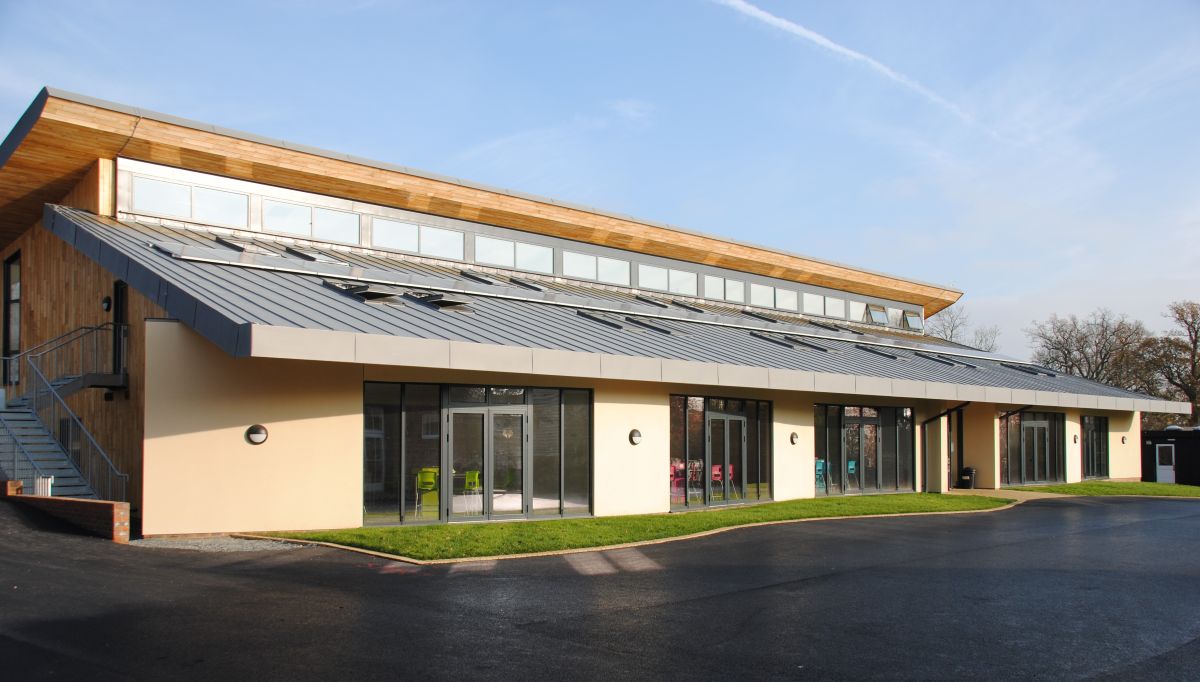
Expert advice in aluminium and steel windows
At Window Wise, we specialise in high-quality aluminium window systems for homes and businesses but also collaborate with trusted partners to deliver specialist steel windows when the project requires it.
Our role is to give you unbiased, practical advice – ensuring you get the right solution, both aesthetically and for your needs and budget.
Find out more or book a design consultation
Explore our full range of stylish, secure and energy efficient aluminium windows, or see them for yourself at our Haywards Heath showroom.
Call our team on 01444 457 145 to book a design consultation at our showroom or your location.